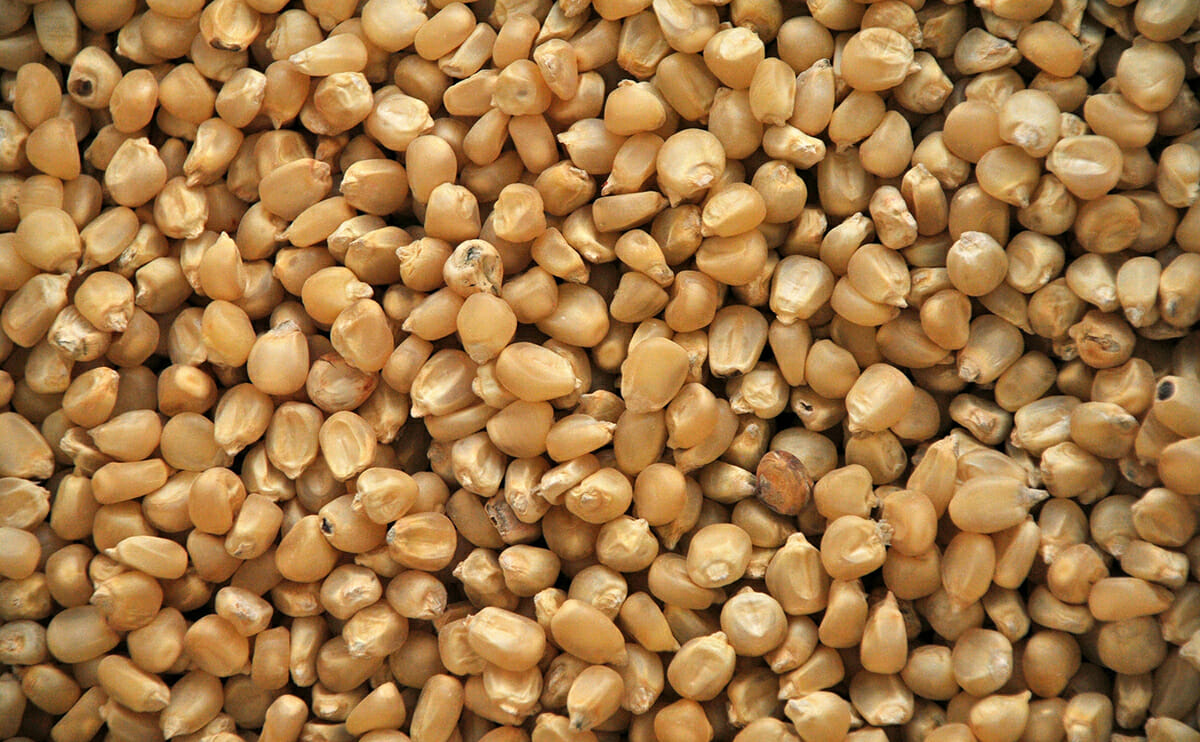Reading last week's ag news about two high-profile seed thefts, you might think the ghost of Tom Clancy had made a go at farm journalism.

Then again, those seeds could be worth millions to the right company.
Last week, the F.B.I. filed charges in two separate cases. One involves hybrid corn in Iowa, the other focuses on rice seeds in Kansas. Court documents show a number of desperate men hoping stolen seeds might give them, their companies and China an edge in the world of industrial agriculture. It’s a concerning story for American agribusiness — and a sad one for the eight Chinese nationals waiting behind bars.
In the first seed theft, security officials for DuPont Pioneer became suspicious when a manager noticed someone crawling through a test field near Tama, Iowa in May of 2011.
‘These are actually very serious offenses,’ said one potential seed thief, to which the other replies ‘They could treat us as spies!’
The manager had reason to worry. His corn was one of the company’s parent lines which can be bred to create high-yielding hybrids. The offspring can’t be reverse engineered, making the “parent” or “inbred” seeds some DuPont Pioneer’s most carefully guarded secrets.
When the manager approached, a nervous man explained that he was an employee of the University of Iowa on his way to an agriculture conference. Then, as the manager took a phone call, he jumped into a nearby rental car and skirted through a ditch to the highway – but not before the manager got the license plate number. Company security forces tipped off the F.B.I, which later identified the corn crawler as Mo Hailong, director of the international business of the Beijing Dabeinong Technology Group Co. living legally in the U.S.
Over the next two years, agents documented an elaborate effort to collect valuable seeds from both Dupont Pioneer, farm giant Monsanto and LG Seeds.
Beijing Dabeinong is one of China’s largest feed companies, but they only recently opened a seed subsidiary called King Nower Seeds. Carl E. Paray, a professor at Rutgers University who studies Asian agriculture, suspects the company wanted the seeds to jump start its breeding programs.
The second case involves a less elaborate sort of industrial espionage. Weiqiang Zhang, an employee of Ventria Bioscience, and Wengui Yan, research geneticist for the U.S.D.A, appear to have given a number of the company’s patented rice seeds to a Chinese delegation visiting the U.S. U.S. Customs and Border Protections found the seeds in the delegation’s luggage as they prepared to fly back to China last August.
The F.B.I looked to Zhang’s drafted emails to establish a motive for delivering seeds. He ends one drafted message with some facts: “The company I work for is the only biotech company in the U.S. that has the ability to produce and sell recombinant protein products from growing rice seeds. I hope in the near future … China will have the same capability in this kind of research and development in biology.”
‘It’s a really important technology. It’s foundational. I would say between $1 and $2 billion have been invested in the ability of plants to become a factory for these types of products.’
Ventria uses genetically modified rice to grow proteins for drugs and medicine. “It’s a really important technology,” C.E.O. Scott Deeter told Bryan Thompson of Kansas Public Radio. “It’s foundational. I would say between $1 and $2 billion have been invested in the ability of plants to become a factory for these types of products.”
The cases also display a shift in the international exchange of plant genetics, explains Gregory D. Graff, a professor of Agricultural Economics at Colorado State University. For the last half century, seed genetics have been exchanged more or less openly across borders, making agriculture something like an open-source coding project. It’s only recently that companies have claimed certain seeds as patented and proprietary, putting a price on genetic sequences.
The question now is whether these are isolated cases — as Governor Terry Branstad of Iowa claims — or if there are a greater number of corporate spies driving around the Midwest in rented cars, having conversations like the one the FBI caught on tape between two of Mo Hailong’s conspirators. “These are actually very serious offenses,” said one, to which the other replies “They could treat us as spies!”
The law isn’t charging Mo Hailong with treason, but seed theft is no joke. At the moment, he faces 10 years in prison and a $5 million fine if convicted.